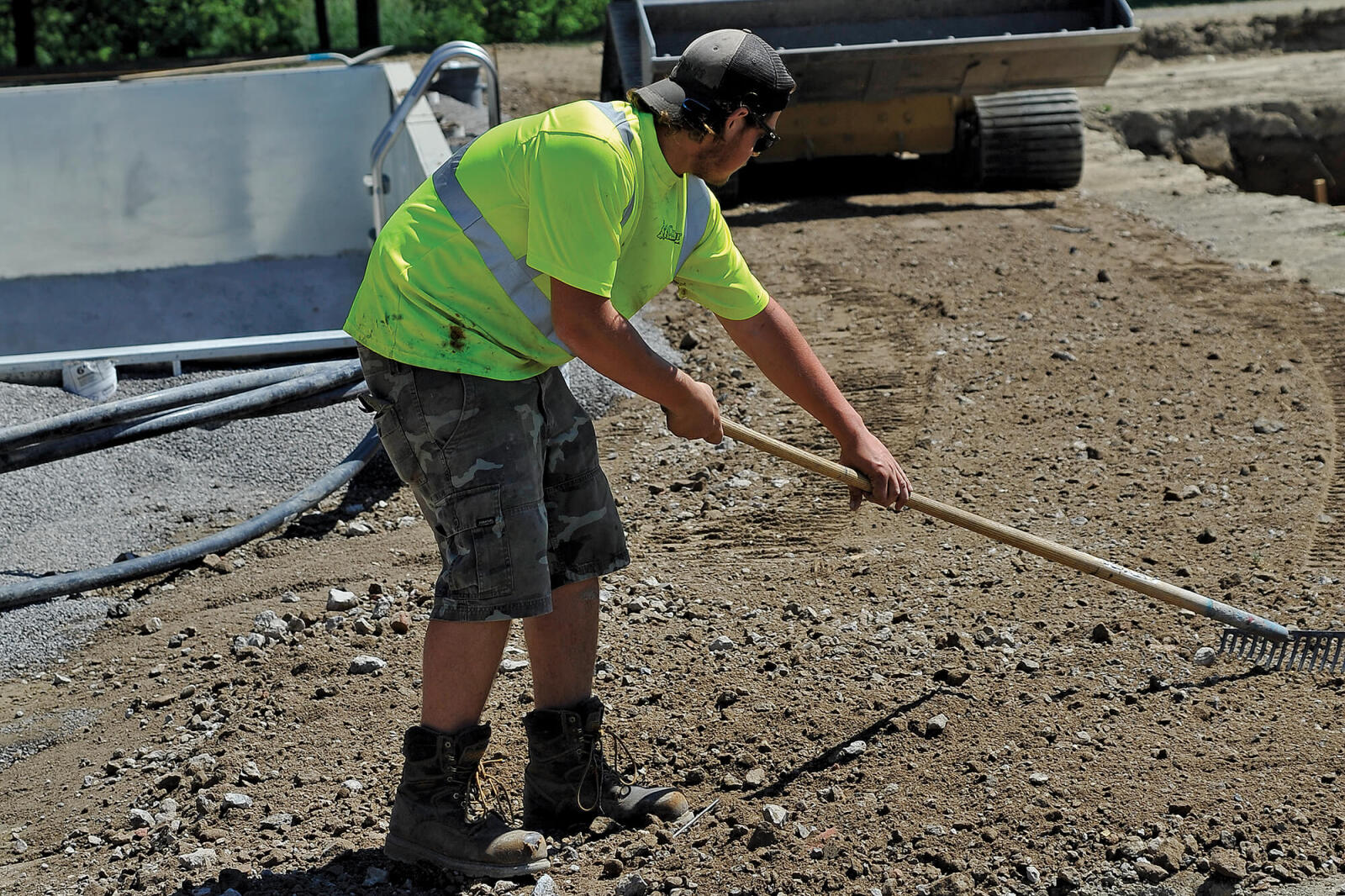March 6, 2018

Company owners have to make this an industry in which people want to work.
Hiring better in 2018
BY MARK BRADLEY
 Things have been good in our industry over the past few years, and many of us have carried last year’s success into 2018. Many contractors I’ve spoken to have already secured weeks, even months, worth of work, which is a great sign.
Things have been good in our industry over the past few years, and many of us have carried last year’s success into 2018. Many contractors I’ve spoken to have already secured weeks, even months, worth of work, which is a great sign.However, the influx of work and opportunities also brings challenges — and for most contractors, the challenge will be finding and keeping the best possible people. We’re not just talking about field staff. More opportunity creates the need for help at almost every stage, including sales/design, operations management, fleet maintenance, as well as field crews and people who lead them.
Many of us are experiencing the same struggles to attract and keep long-term, good talent. This spring, not only will that struggle continue, but it will likely get worse. Contractors are growing, and the labour pool seems to be shrinking. This year’s greatest battle against your competitors may not be about who lands the most, or the best, jobs. It may very well be who secures the best talent. With that in mind, here are a few ways you can help find and keep the best available candidates.
Hire earlier
A simple tip for hiring better this year is to start earlier. Sure, we all want to save money on payroll, and bring people on right when we need them, but think of the consequences. First, all your competitors are doing the same thing. You have less chance to win the best people when you are fighting for hires at the same time. And second, if your hires don’t turn out as well as you hoped, you are really stuck. Now you’re knee-deep in the busy season — all the good hires have been picked through and secured — and you’re too scared to change from your bad hire decisionConsider putting a full-court press on hiring two to four weeks before you really need your staff. You can spend some time training (wouldn’t it be nice to have the time!) or even giving the new hires small jobs around the shop. Organizing the shop, trailers, or building systems around the yard will improve your efficiency for the rest of the season.
Consider the extra payroll costs just like a head-hunting fee — you get what you pay for. A few weeks’ pay is worth locking up a productive, responsible employee.
Set up a skills test
If you follow the advice above, you will have a week or more in the spring with more people on payroll than available work. So, set up a skills test for your new hires at your shop and yard.For maintenance hires, this could be a truck and trailer test on parking, connecting, inspecting and loading; a skills test (trimming, mowing, mower equipment knowledge); or even a find-the-problem-in-this-picture photo test.
For install hires, set them up with a small project. Have them build something around the shop or yard, maybe a set of steps or a storage closet. Give them a design and see how they make out independently. For bonus points, insert some glitches into your design to see which candidates spot the problems, and how they react.
Pre-interview candidates
Consider the pre-interview: A tool that will likely save hours of time wasted in bad interviews, and a great way to filter out candidates who lack any serious interest or commitment.Create a pre-interview questionnaire and email it in response to every resume you receive, along with a deadline. Say, four days.
Don’t worry about trying to analyze a person’s personality with tricky questions. The objective is not to unlock deep secrets of the applicant’s likelihood of success or failure. Keep it real. Most companies would be happy finding an employee who:
- Shows up for the interview.
- Shows up to work for more than the first three days.
- And is a good team player, puts in a fair day’s work, and thinks about how their daily work could be organized or performed better, faster or cheaper.
A good, simple pre-interview can help you do just that. You are likely to find that many applicants won’t even respond. Perfect. Those are the same people who won’t show up for the interview. Or, they are the people who show up for the interview, get hired, then don’t show up for the second day of work. You just got rid of a bunch of headaches you don’t need.
For those looking for a more thorough pre-interview, especially for office or management positions, consider tools like Sparkhire.com. You can set up online pre-interviews, allowing candidates to film answers using their smartphone or webcam. This way, you can do virtual pre-interviews of multiple candidates, and you can watch their video answers, helping you get a better sense of their personalities and communication skills. The best part is, you set up the interview once, and you can run multiple candidates through the same virtual interview. Hack the standard interview process and jump straight to the candidates that strike you as the most likely to succeed, while reducing your time interviewing by 50 to 90 per cent.
Consider offering more
Most landscape contractors I know feel the emerging labour problem is the single biggest crisis facing our industry today. There is tons of work out there, but there are not enough reliable people ready and willing to perform the work.When creating your compensation package, consider the following:
- Most jobs in landscape are seasonal with somewhat unreliable, fluctuating hours
- Traditionally, landscaping has been one of the lowest-paying trades.
- Most companies offer few (if any) benefits to help cover costs of health care, dental, or even retirement planning.
- Most companies do not spend enough time and effort on training or building a culture where people enjoy what they do, and who they work with.
- Most companies do not even treat their own positions as careers, and then wonder why they can’t keep long-term employees. If you don’t onboard new staff properly, work with staff to map out and develop careers, offer continuing education and objective performance feedback — good staff are not going to stick around.
If, as individual businesses and as a profession, we want to start attracting better talent to work in our field, then it is up to us to make this an industry in which people want to work. We are blessed to work in a trade that people actually love doing — gardening is one of the Top Ten hobbies in Canada. Plumbing and HVAC will never take that title from us! But landscaping has struggled to convert that interest and passion into reliable and rewarding careers.
Take a long, hard pause and consider what your company can do this year to attract the best and brightest talents from this tight labour pool. It will likely cost you more in wages, but good hires will pay for themselves ten times over with:
- Better and faster execution.
- More responsibility and higher accountability.
- Better care of equipment and client property.
- Better training and mentoring of the workers they manage.
- Years of loyalty, stability, consistency — and best of all — years of knowledge and experience embracing your company’s culture, values and experience. This most important deliverable will allow you to, one day, step back gracefully from day-to-day operations, while it continues to reward you for the years of dedication, risk and hard work you put in while you built the business.
Have a little fun
Company barbecues are a good step, but maybe it is time to inject something more as well. Maybe a field trip to an event, like a sports game or axe throwing. Take lots of pictures. Add pictures of your people and your company culture to your website; your site should reflect a place where people want to work. It will help your sales, too. People want to do business with great people and great companies.Give more information, more responsibility, and more timely feedback. There is a lot of information circulating about Millennials and how to manage them. Our industry can take some simple lessons away:
- People want more creativity and autonomy. Give them clear goals and the responsibility to achieve them.
- People want more transparency and information. Turn jobs into a game. If staff know the expectations and know exactly where they stand at all times, work turns into a bit of game to beat the goals. When you’re beating your goals, you feel more fulfilled at your job.
Mark Bradley is CEO of LMN, based in Ontario.